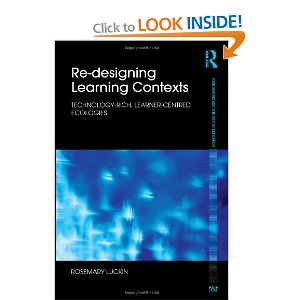 I had a fascinating discussion with Alasdair Blackwell from Decoded today about the kind of pedagogy that might ground his innovative approach to teaching coding. This conversation allowed me to indulge myself in talking about the work of Lev Vygotsky, a man who lived in Russia at the start fo the 20th century and from whom we can still learn a lot. So, what could his work have to say that could be relevant to ICT, Computer Science and the emerging technologies of today on games consoles, smart phones, ipads etc.? Quite a lot actually…
I had a fascinating discussion with Alasdair Blackwell from Decoded today about the kind of pedagogy that might ground his innovative approach to teaching coding. This conversation allowed me to indulge myself in talking about the work of Lev Vygotsky, a man who lived in Russia at the start fo the 20th century and from whom we can still learn a lot. So, what could his work have to say that could be relevant to ICT, Computer Science and the emerging technologies of today on games consoles, smart phones, ipads etc.? Quite a lot actually…
One of the key things Vygotsky’s work promoted is the idea that we should be more interested in a learner’s potential for future growth and achievement than we should be in their current ability to achieve, as measured, for example through many forms of assessment. We should be more interested in this potential because it is a greater predictor of a learner’s ability to develop further in the future and because we can help learners to do better by focusing upon this potential.
But how can we focus on this potential? We can do this by offering learners assistance so that we can see how much they can achieve with this assistance. The more learners achieve with assistance, the greater their potential for the future. The idea is that as the assistance is removed, the learner moves on to the next challenge. So what has this got to do with emerging technologies?
Well, consider the types of popular application that offer an adaptive learning experience, for example Manga High if these adaptive ‘engines’ were powered by data bout how well their users had dealt with challenges beyond their current ability and how well they had taken best advantage of any hints, tips and assistance available to them, then they would be better predictors of a learner’s potential and they may also be even better at extending learners to build on their current understanding and progress to a greater extent. The idea that being given assistance to achieve is important for learning and development must of course be tempered with the knowledge that this assistance must be sensitively faded so that the learner can do it alone and then move onto the next challenge when the help and assistance must be ramped up. This idea of offering and withdrawing assistance in a manner that is suited to a learner’s needs is what top teachers achieve and it is what emerging technology can also enable. This is applicable not just to games and adaptive system like, but also to technologies that support collaborative learning, such as (add links). These technologies are great for young learners who find them deeply motivating, but left to their own devices learning for most young people is unlikely to move beyond the relatively pedestrian social activities that are fun, but that don’t stretch them to fulfill their potential. Of course, with the help of a teacher or a friend who knows a bit more they can achieve a great deal more, using the technologies that they already own and use. (see the evidence for this in these papers). What does this mean in practical terms for people who are using or designing technologies and applications? It means that learners need to be constantly challenged to achieve things beyond their own individual ability and then given some assistance to help them achieve success. This assistance might come in the form of hints and tips and feedback built into the activity or application, or it might come from other learners, teachers, parents friends, whatever the sources of the help, the important thing is that it is gradually and sensitively removed, so that the learner develops to their full potential. games that challenge you to take on the next level of difficulty and allow you to take advantage of hints and tips to be successful. If these games measured the efficiency with which their players used those hints and tips to achieve success they could tailor the levels of difficulty the user is challenged to take on in order to maximise the extension of their learning potential. and then extent to which users in the potential of a learner to achieve something that challenges them than we should be in their ability to achieve something on their own.
